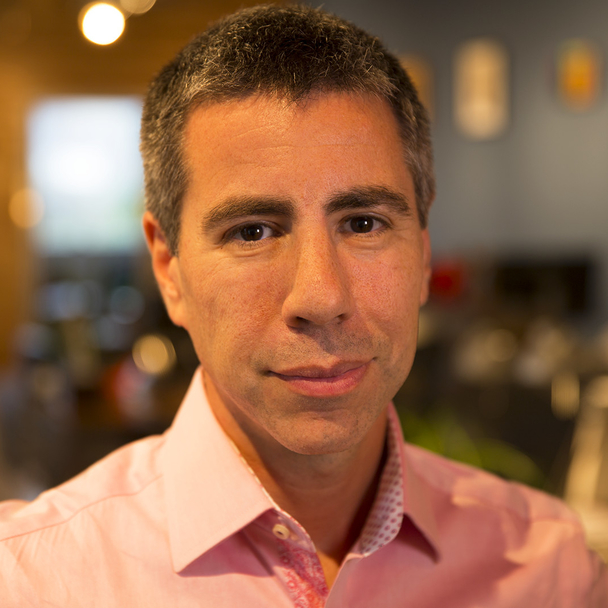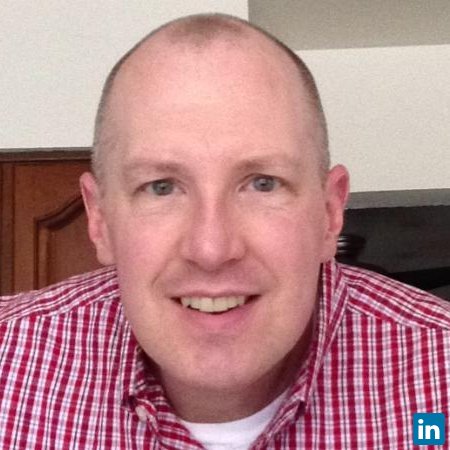About our project
The problem we solve: Bringing a new drug to market can cost $10 billion and take many years. Must of the cost and time is due to a lack of reliable data from clinical trials. The decision to move a drug from Phase 2 to phase 3 testing is an expensive one, and current antiquated methods for collecting data from research subjects are prone to errors and lack reliability and consistency. Data from wearables and sensors have the potential to transform clinical trials, but drug makers lack the ability and know-how to fully utilize these important streams of information. Continuously measuring outcomes in multiple dimensions will lead to faster, more efficient pipelines.
Parkinson's disease and other related movement disorders are a major cause of morbidity. One of the biggest problems for this population are falls. Developing new therapies that can reduce the incidence of falls are a primary goal, and Litmus aims to improve these pipelines.
About our solution:
We use real life data collected at the point of experience from wearables, smart devices, and home sensors to guide management and to inform clinical trial endpoints. We help our customers describe the full value of their work in observational studies, therapeutical trials, and post-market research. From small observational studies to large scale registries, we help researchers unlock fundamentally new insights from patient data. The Litmus platform supports more than 200 data sources that describe patients’ behavior and environment. We are device and disease agnostic. The Litmus platform allows researchers to capture and integrate multiple disparate data sources and look for correlations between behavior, environment and patient outcomes. By modeling device behavior and comparing results to baseline data, Litmus allows researchers to confidently use data from wearables and sensors in their clinical trials.
Progress to
date:Litmus Health is currently being used with its first paid customers, and a free version is available to and being used by academic researchers. At the University of Chicago, the Litmus platform is being piloted by Dr. David Rubin in a Takeda-funded study of 500 patients with Crohn’s disease and ulcerative colitis. Research subjects install the Litmus app on their smartphone and link it to a Fitbit provided through the study. The app and the wearable track patient activity, sleep, and heart rate, alongside daily questions and bi-weekly surveys recorded through the Android and iOS app. The reception has been extremely positive, and we expect our first studies to be published in the first quarter of 2018. New studies are being designed for new academic and industry customers.
About Our Team

Creator: Samuel Volchenboum
Location: Illinois
Education: Medical School
Bio: Dr. Volchenboum is an associate professor of pediatrics and the associate chief research informatics officer for the biological sciences division at the University of Chicago. His clinical speciality is pediatric hematology / oncology, caring for kids with cancer and disease of the blood. In addition to his clinical practice, he directs the University of Chicago’s Center for Research Informatics, a 40-person group that supports biological research throughout the division. As director of this center, he oversees high-performance computing, HIPAA-compliant storage and backup, application development to support clinical trials, development and maintenance of the clinical trials management system, the clinical research data warehouse, data analytics and visualization, and bioinformatics, including high-throughput genomic analyses and machine learning. He oversees data governance for the division and medical center, facilitates stewardship and oversight of research data produced by hospital transactional systems, and works to produce policies and procedures for both data governance and security. He is the director of the Informatics Core for the Clinical and Translational Science Award (CTSA). Since 2015, he has been the faculty director for the Masters in Biomedical Informatics at the Graham School at University of Chicago. Dr. Volchenboum’s major research interest is in building commons to support scalable and extensible biological research.
Hospital Affiliation: University of Chicago
Title: Co-founder, Chief Medical Officer
Advanced Degree(s): MD, PhD, MS
About Team Members
Josh Jones-Dilworth
Sales and Marketing, BA
Biography: As a co-founder of Litmus Health, Josh Jones-Dilworth brings 15 years of sales and marketing experience, having started his pharma career with Merck and Pfizer.
Josh founded JDI, a boutique consultancy that brings emerging technologies to market, including Siri, Viv, Wolfram Alpha, and Zocdoc. In healthcare and bioinformatics specifically, Josh has launched major companies such as Bina, Clear Labs, Kernel, and MyAsics.
At Litmus Health, Josh drives strategic partnerships in sales and marketing.
Title: Sales and Marketing
Advanced Degree(s): BA
Twitter:
@joshdilworth
LinkedIn:
https://www.linkedin.com/in/joshjonesdilworth/
James Crooks
Chief Technology Officer, BS, PhD
Biography: James Crooks is the Chief Technology Officer of Litmus Health, where he oversees all technology decisions and developments, and personally develops core infrastructure for the platform.
He earned his PhD in Biophysics at the University of Chicago before turning his talents to Litmus Health. James was the founding CTO of Artifice, a Chicago-based hackerspace and incubator focused on empowering youth.
During his time at Nokia, James also helped apply machine learning techniques to identify key patterns in traffic patterns and speed limits specifically, an application still used today.
His deep expertise in machine learning as it applies to healthcare has been recognized by the National Science Foundation, National Institutes for Health and University of Chicago, and the Howard Huges Medical Institute.
Title: Chief Technology Officer
Advanced Degree(s): BS, PhD
LinkedIn:
https://www.linkedin.com/in/jamescrooks/
Daphne Kis
CEO, MA
Biography: The team is led by CEO Daphne Kis, a longtime technology entrepreneur and CEO.
She spent nearly twenty years as co-founder and CEO of EDventure Holdings where she published Release 1.0, the premiere report on emerging trends in technology, which helped catalyze many of the breakthroughs that modern technology users take for granted today.
EDventure also produced the canonical conference of the web.0 era, The PC Forum, and invested in emerging markets through their early stage fund, including healthcare IT and life sciences.
Daphne leads the Litmus team with a strong early stage venture strategy and vision.
Title: CEO
Advanced Degree(s): MA
LinkedIn:
https://www.linkedin.com/in/daphnekis/
About Our Company

How We Help Patients
For too long patients have been treated with drugs that only improve quantity of life instead of quality of life. When researchers have tried to include more holistic data in this process, they’ve had to rely on faulty or incomplete memories, handwritten notes and paper questionnaires, which are imprecise at best, and downright incorrect at the worst.
With advances in wearable technology, there are more opportunities for drug developers and researchers to look at a host of other factors of a person’s health, like sleep, exercise, and heart rate, with clinical accuracy. By collecting and analyzing this data during clinical trials, clinicians can develop drugs that take the whole person into account, ultimately leading to a higher quality of life for patients that considers their entire health, for longer.
Collecting, analyzing and interpreting wearable data in the clinical trial is certainly new, and there currently isn’t an easy way for researchers to leverage this technology. With the Litmus Health platform, data scientist and researchers can collect, analyze and interpret data from wearables with seamlessly, making it that much easier to implement wearable data in their next trial.
How We Help Physicians
Doctors and other providers struggle for better ways to collect data from their patients. Litmus Health provides a unified platform for collecting data from many disparate sources, including patient-reported outcomes, devices, wearables, and smart phones. We are focussed on better data collection for clinical trials, and we are embarking on a data collection study for patients with Parkinsons's disease and other related movement disorders. By collecting a large amount of baseline data, we will be able to empower future studies and trials on patients with Parkinson's.
How We Help Hospitals
Hospitals are key participants in clinical trials. Despite advances in our ability to conduct trials, the collection of patient data remains a challenge. From patient-reported outcomes to device and wearable data, hospitals and clinics struggle to faithfully collect data for trials and report that data back to sponsors. Litmus solves these problems by providing a platform for data collection from wearables and sensors as well as surveys delivered on their smart phone. Collecting data this way lowers the barriers to research, frees up time from study personnel, and shortens the duration and lowers the price of clinical trials.
How We Help Partners
In early stage clinical trials, the decision to go from phase 2 to phase 3 is an expensive one, and several hundred million dollars usually hang in the balance. Moreover, peak sales only last as long as the patent clock allows. This makes drug development high stakes and expensive for the companies involved.
The Litmus Health Platform uses real life data collected at the point of experience from wearables, smart devices, and home sensors to guide clinical management and to inform endpoints. In doing so, we help pharmaceutical researchers describe the full value of their work in observational studies, therapeutical trials, and post-market research. From small observational studies to large scale registries, we help researchers unlock fundamentally new insights from patient data.
Continuously measuring outcomes in multiple dimensions leads to faster, more efficient and profitable drug development pipelines for the pharmaceutical industry. For post-market researchers, we can help evidence marketing claims and support price by evidencing new dimensions of benefit.
Challenge Mission
Key Milestones Achieved and Planned
Since launching in October of 2016, the Litmus Health platform has acquired several paid customers as well as offering a free version to academic researchers. Litmus has also partnered with Dr. David Rubin, Professor of Medicine and Co-Director of the Digestive Diseases Center at the University of Chicago, on a 500-patient study funded by Takeda Pharmaceuticals, which is focused on personalizing treatments for IBD patients by collecting, integrating, and analyzing quality-of-life data from Fitbits, mobile devices, and other electronic patient-reported outcomes.
Litmus Health is the first company to use wearables to measure quality-of-life outcomes in a clinical trial - not just testing them for feasibility and compliance, but actually collecting the data as study endpoints.
Our Competitive Advantages
Our first deployment with the University of Chicago is the first clinical trial to use wearables to conduct research on a disease, rather than testing the feasibility of the wearables and their behavioral impact on participants.
In addition, it’s important to note that we are a platform, not a point solution, so our technology is extensible, plays well with others, and can be custom-built for a wide range of trials.
We are a modern EDC (electronic data capture) platform. Whereas most EDCs today simply route data, Litmus augments data by correlating them with other environment-based data like pollution data, weather-related data, GPS, etc.
Furthermore, Litmus adds value to the data it collects. While the Fitbit collects data on sleep, the platform is also integration sleep survey data and other patient-reported outcomes in order to validate the wearable data. Likewise, starting with Fitbit step data, Litmus can add in mobile device GPS information and patient-reported pain to determine the best measure of patient activity.
We are device independent, so we can integrate with any number of wearables, smart devices, and sensors, regardless of maker.
Our platform is also ML-ready (ready for machine learning. Data scientists ready to work with Litmus data type in one line of Python and have access to their data, in the system, fully positioned, and ready to go. There is no wrangling, and no data
Barriers to Entry
Most competitors in this space focus on the collection of data from wearables. But this attention to the collection of data, while important, ignores the important aspects of data positioning and data engineering. Litmus is a complete platform for data acquisition, aggregation, and presentation, allowing researchers to use data for their downstream analyses without worrying about complicated data transformations. No other competitor has demonstrated that they are thinking about data in the same ways as Litmus. There will be significant barriers to any other group endeavoring to serve the same functionatliy, as Litmus has two years of engineering work in building a scalable and extensible platform for wearable and sensor data.
Traction, Funding and Partners
We’re self-funded to date, and over the past several years we have formed an accomplished team, built our technology platform, and deployed our first pilot study at the University of Chicago. We’ve partnered with Dr. David Rubin, Professor of Medicine and Co-Director of the Digestive Diseases Center at the University of Chicago, on a 500-person studty funded by Takeda Pharmaceuticals, focused on personalizing treatments for IBD patients by collecting, integrating, and analyzing quality-of-life data from Fitbits, mobile devices, and other electronic patient-reported outcomes.
Our IBD pilot is IRB-approved at the University of Chicago, meaning we have been approved to conduct biomedical and behavioral research involving humans. Furthermore, we have negotiated the agreements with the University of Chicago that allow Litmus to keep the data it collects while clearly specifying that clinical data remain solely part of the medical record. Litmus is bringing this regulatory knowledge to subsequent endeavors.
Litmus is HIPAA and 21-CFR Part 11 compliant. The data we collect can be provided in CDISC’s SDTM format, as mandated by the FDA.
Innovation Details
Intellectual Property Summary
Our IP is around our infrastructure and platform, and is related to data engineering, machine learning and the modeling of device errors.
Clinical Information
We are collecting pilot data that will be published, demonstrating the efficacy and relvance of the Litmus platform. We have obtained IRB approval at the University of Chicago to colllect data for a study on 500 patients with inflammatory bowel disease, funded by Takeda Pharmaceuticals. We are seeking IRB approval for other clinical studies and expact to scale the current platform accordingly.
Regulatory Status
Litmus health does not have or seek FDA approval for its platform. Traditionally, the FDA has not required regulation of platforms that collect data to support clinical trials, and it is up to the sponsor to submit data in accordance with any applicable FDA guidlines. Litmus is HIPAA compliant and 21-CFR Part 11 ready. The data we collect can be provided in CDISC’s SDTM format, as mandated by the FDA.
How we will use the funds raised
Funding will be used to generate baseline validation data for metrics of study. For instance, collecting better baseline falls data from patients with movement disorders will allow Litmus to utilize its platform to study research subjects with Parkinson's disease and other similar disorders. Funding will allow Litmus to recruit and monitor volunteers in order to build a model to detect falls in this patient population, facilitating better therapeutic studies in this population.
Thank You
Litmus Health is dedicated to improving human health by transforming the clinical trials process. Billions of dollars are wasted during drug development because of unreliable data and extended trial times. Litmus fixes many of these problems by facilitating the collection of real-world data from resarch subjects at the point of experience. We then position that data to allow both academic researchers pharmaceutical companies to better use the information to improve drug and biologic development.
Litmus is an exciting technology for clinical researchers because it helps us incorporate new data that we haven't been able to access or use in studies or trials until now. With Litmus, we are able to look for hidden relationships and undiscovered corrleations that have eluded us previously.
What really causes Crohn's disease and ulcerative colittis sufferers to flare? What about someone with Multiple Sclerosis? Migraines? Lupus?
When and how do Parkinson's patients fall? This one has been particularly difficult to measure because falls happen infrequently, and are seldom directly observed by a caretaker. In addition, many suffers of Parkinson's also suffer from demensia, which often makes recalling the circumstances surround a fall difficult.
Furtthermore a review of the academic study litertaure surrounding falls leaves a lot to be desired. The consclusion that falls should be studied further is consistently reached, but not until now has the neccessary technology been mature enough to enable a feasible solution.
In chronic disease categories where there are good days and bad days, Litmus can help detect what was previously undetectable. We do this through a combination of data collection (engineering) and data analysis (artificial intelligence).











